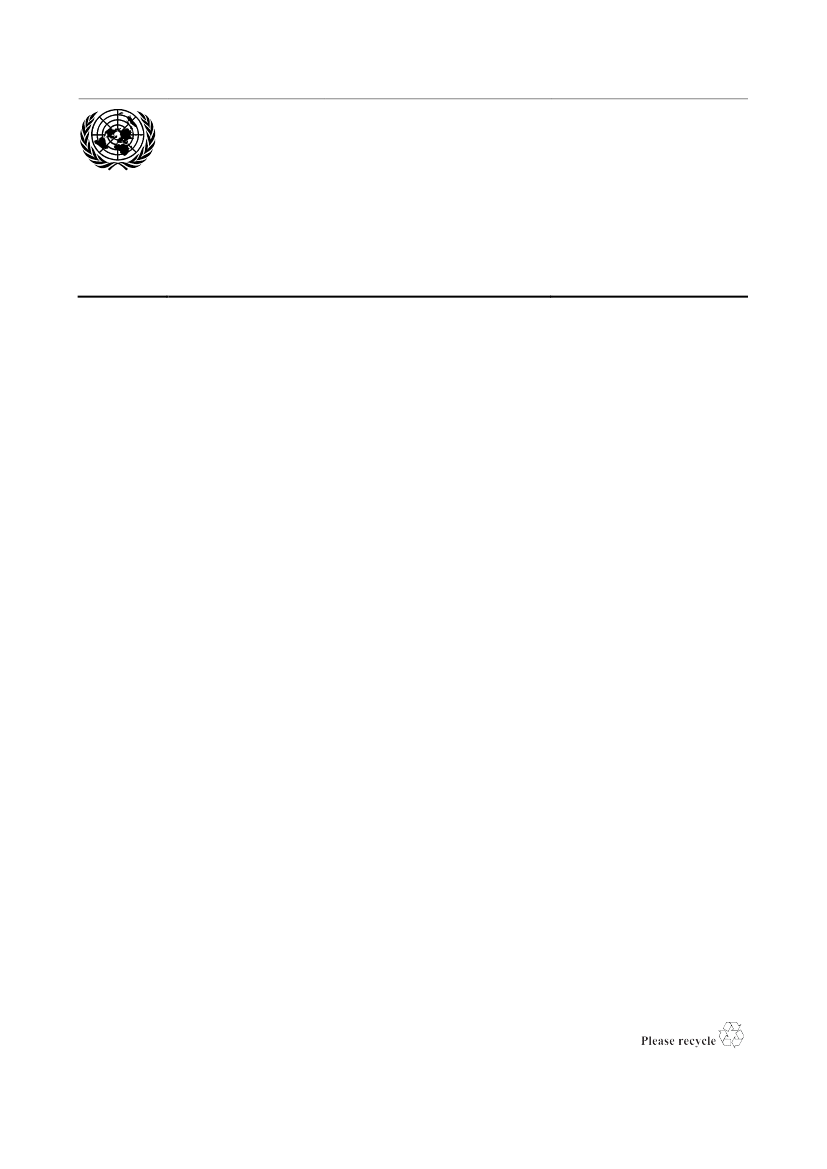Retsudvalget 2012-13
REU Alm.del Bilag 300
Offentligt
United Nations
E/C.12/DNK/CO/5Distr.: General17 May 2013Original: EnglishADVANCED UNEDITEDVERSION
Economic and Social Council
Committee on Economic, Social and Cultural Rights
Concluding observations on the fifth periodic report ofDenmark, adopted by the Committee at its fiftieth session (29April-17 May 2013)1.The Committee on Economic, Social and Cultural Rights considered the fifthperiodic report of Denmark on the implementation of the International Covenant onEconomic, Social and Cultural Rights (E/C.12/DNK/5) at its 17th and 18th meetings, heldon 10 May 2013 (E/C.12/2013/SR.17-18), and adopted, at its 28th meeting held on 17 May2013, the following concluding observations.
A.
Introduction2.The Committee welcomes the submission of the fifth periodic report of Denmark(E/C.12/DNK/5), including information on the situations in Greenland and the FaroeIslands, and the replies to its list of issues (E/C.12/DNK/Q/5/Add.1). It notes withappreciation that the State party’s delegation was gender-balanced and made up of expertsfrom various Ministries. The Committee appreciates the State party’s informative andconstructive interactive dialogue and engagement with the Committee.
B.
Positive aspects3.The Committee notes with appreciation:(a)the adoption of a new strategy for development cooperation in May 2012;
(b)the setting up in December 2012 of an Expert Committee to examine, interalia, the question of the incorporation of international human rights instruments, includingthe ICESCR;(c)the measures taken aimed at improving the living conditions for asylumseekers and other immigrants in the State party;(d)the issuance of a new set of National Guidelines to Maternity Care inDenmark in 2009 and updated in 2012; and(e)the adoption of the Action Plan against Human Trafficking (2011-2014).
GE.13
C.
Principal subjects of concern and recommendations4.The Committee reiterates its concern that the State party has still not incorporatedthe International Covenant on Economic, Social and Cultural Rights into its domesticlegislation. The Committee is also concerned that despite the State party’s statement thatthe Covenant is applied by the Danish courts, case law shows that international humanrights treaties are rarely applied by courts or invoked by parties to a case, and that theSupreme Court has stated that non-incorporated treaties do not have direct effect in thedomestic legal order.The Committee recommends that the State party incorporate the InternationalCovenant on Economic, Social and Cultural Rights into its domestic legislation, andimprove the awareness and knowledge of the Covenant through human rightseducation and training programs, including for the judiciary. The Committee drawsthe State party’s attention to its General Comment No.9 (1998) on the domesticapplication of the Covenant.5.The Committee notes that the State party continues to maintain a reservation toarticle 7 (d) of the Covenant regarding the right to remuneration for public holidays, madeat the time of ratification in 1972.The Committee recommends that the State party review its reservation to article 7(d)of the Covenant, with a view to withdrawing it, in particular as the State partyincluded a temporary element in its reservation to article 7(d).6.The Committee notes with appreciation the independent status of the DanishInstitute for Human Rights, but regrets that its mandate does not yet cover the FaroeIslands.The Committee recommends that the State party, in co-operation with thegovernment of the Faroe Islands, enact legislation with a view to extending themandate of the Danish Institute for Human Rights to the Faroe Islands as well. It alsoencourages the Danish Institute for Human Rights to address economic, social andcultural rights on an equal basis with civil and political rights, in view of theuniversality and indivisibility of all human rights.7.The Committee regrets that the State party has not adopted a comprehensive anti-discrimination legislation yet, but rather relies on different acts affording different levels ofprotection to different groups of individuals. (art.2)The Committee recommends that the State party take steps to adopt comprehensiveanti-discrimination legislation, guaranteeing protection for all against discriminationin the enjoyment of economic, social and cultural rights, as stipulated in article 2,paragraph 2, of the Covenant. The Committee recommends that the State partyensure that such legislation also protects against discrimination on the grounds ofsexual orientation as well as disability. The Committee draws the State party’sattention to its General Comment No.20 (2009) on non-discrimination in economic,social and cultural rights.8.The Committee reiterates its concern about the persistent wage gap between womenand men, in particular in the Faroe Islands, as well as the underrepresentation of women inhigh-ranking posts, especially in academia and the private sector. (art.3)The Committee recommends that the State party intensify its efforts to ensureequality between men and women in the workplace, address the persistent wage gapbetween men and women, and ensure equitable representation of women inmanagerial positions. It also recommends that the State party include in its nextperiodic report information on progress made in these areas.
9.The Committee is concerned that women from minority groups continue to facedifficulties in realizing and accessing Covenant rights, in particular accessing education,employment and health care. (art.3)The Committee recommends that the State party intensify measures, includingtemporary special measures, to facilitate access by women from minority groups to allCovenant rights, in particular education, employment and health care.10.The Committee is concerned that the unemployment rate among youth as well asimmigrants from developing countries is higher than the national average. It is alsoconcerned that the unemployment benefit period has been reduced from four to two yearsas of 1 January 2013. (art.6)The Committee recommends that the State party intensify steps, in particular throughthe Emergency Rescue Plan 2013, to address the higher rates of unemploymentamong youth as well as immigrants from developing countries. The Committee alsorecommends that the State party include in its next periodic report an assessment ofthe impact of the reduction of the unemployment benefit period on the standard ofliving of persons affected by this change.11.The Committee is concerned that persons with disabilities are disproportionatelyunderrepresented in the labour market and that their participation is declining. TheCommittee is also concerned that domestic labour legislation does not include a standardduty on the employer to provide for reasonable accommodation. (art.6)The Committee recommends that the State party take steps to promote an inclusivelabour market for persons with disabilities and amend domestic labour legislation toinclude the standard duty for employers to provide for reasonable accommodation.12.The Committee notes with concern that the State party has not yet introduced anational minimum wage thus endangering in particular the right of workers not covered bycollective agreements as well as persons with disabilities to equal remuneration for work ofequal value. (art.7)The Committee recommends that the State party take legislative and other measuresto introduce a national minimum wage. It also recommends that the State partyensure that the level of the national minimum wage is periodically reviewed and set ata level sufficient to provide all workers and their families with a decent standard ofliving.13.The Committee is concerned that the level of the basic social assistance allowancepaid to persons under 25 years of age is not set at a level adequate to ensure a decent living.The Committee is also concerned that early retirement reform may preclude persons withdisabilities under the age of 40 from accessing disability pensions. (art.9)The Committee recommends that the State party ensure that the level of socialassistance benefits for persons under 25 years of age is sufficient to ensure a decentliving. It also recommends that the State party take steps to ensure that persons withdisabilities under the age of 40 have access to disability pensions.14.The Committee is concerned that corporal punishment of children is not explicitlyprohibited in Greenland regarding the home and other care settings. (art.10)The Committee recommends that the State party take steps to ensure that corporalpunishment is prohibited in all settings in Greenland.15.The Committee is concerned that a significant number of children are placed in careoutside of their home, including in institutional care. (art.10)
The Committee recommends that the State party take steps to ensure that family-typecare rather than institutional care is offered for children deprived of a familyenvironment. It also recommends that the State party take steps to ensure thatchildren who are placed in care outside of their home, in particular children withdisabilities, have access to adequate care. In this regard, the Committee recommendsthat the State party take into account the Guidelines for the Alternative Care ofChildren, annexed to General Assembly resolution 64/142.16.The Committee is concerned that certain segments of the population are at anincreased risk of living in poverty, in particular single parent families, families living onState welfare as well as immigrant families. (art.11)The Committee recommends that the State party take steps to introduce a nationalpoverty line, and introduce measures to guarantee targeted support to all those livingin poverty, in particular single parent families, families living on State welfare as wellas immigrant families. It also recommends that targeted measures are taken, inaddition to the existing measures promoting poverty alleviation through education, toaddress poverty in remote settlements and villages in Greenland. In this regard, theCommittee draws the attention of the State party to its statement on poverty and theInternational Covenant on Economic, Social and Cultural Rights, adopted on 4 May2001 (E/2002/22 - E/C .12/2001/17, Annex VII).17.The Committee is concerned that migrant workers and other disadvantaged andmarginalized groups, including the Roma people, face obstacles in realizing their right toadequate housing units. The Committee is also concerned about the continuing shortage ofsocial housing, including in the Faroe Islands. It is furthermore concerned about thepersistence of homelessness in the State party, particularly among the immigrantpopulation, as well as about the persistence of a high number of forced evictions. (art.11)The Committee recommends that the State party, taking into account theCommittee’s General Comment No. 4 (1991) on the right to adequate housing, adoptall appropriate measures to ensure access to adequate housing for disadvantaged andmarginalized groups, including migrants and the Roma, inter alia by ensuring thatadequate resources are allocated to increase the supply of social housing units and byproviding appropriate forms of financial support, such as rental subsidies. TheCommittee furthermore recommends that the State party take all appropriatemeasures to improve both the quantity and quality of reception facilities (includingemergency shelters, hostels, reception and social rehabilitation centres and boardinghouses), and develop appropriate policies and programmes to facilitate the socialreintegration of homeless persons. The Committee also recommends that the Stateparty take steps to ensure that persons forcibly evicted are provided with alternativeaccommodation or compensation enabling them to acquire adequate accommodation,in accordance with the guidelines adopted by the Committee in its General CommentNo. 7 (1997) on forced evictions.18.The Committee notes with concern that quota refugees, migrants reunified with theirfamily, and undocumented migrants continue to encounter difficulties in gaining access tohealth care facilities, goods and services. (art.12)The Committee recommends that the State party take steps to ensure that all personsbelonging to disadvantaged and marginalized groups and individuals, in particularquota refugees, migrants reunified with their family, and undocumented migrants andmembers of their families, have access to basic health care. The Committeerecommends that these steps include guaranteeing health examinations to suchpersons upon their arrival in the State party, and offering of vaccinations to theirchildren. It also recommends that the State party take steps to raise awareness among
disadvantaged and marginalized groups and individuals of the healthcare system andensure that all have access to related information in languages other than Danish.19.The Committee is concerned about the disadvantaged position of children ofimmigrants and Roma in public schools, linked to socio-economic factors, compared toethnic Danish pupils. It is furthermore concerned that asylum-seeking children are notpromptly integrated into mainstream public schools. (articles 13 and 14)The Committee recommends that the State party prioritize the implementation of theframework for language development and the reduction of the impact of socio-economic backgrounds of pupils on their academic performance. The Committeefurthermore recommends that the State party take steps to ensure that asylum-seeking children are promptly integrated into mainstream public schools, and are notfirst educated in separate schools.20.The Committee is concerned that children with disabilities are much less likely thanchildren without disabilities to take final exams after completing compulsory primary andsecondary education, and that, if they do, they perform less well in those exams comparedto children without disabilities. (articles 13 and 14)The Committee recommends that the State party take steps to ensure an inclusiveeducation for children with disabilities. It also recommends that the State partyensure that teachers are trained to educate children with disabilities within regularschools and that children with disabilities are provided with the necessary equipmentand support.21.The Committee is concerned that the State party has not applied the principle ofcultural self-identification in relation to the recognition of the Thule Tribe of Greenland asa distinct indigenous community. (art.15)The Committee recommends that the State party take steps to recognize the ThuleTribe of Greenland as a distinct indigenous community capable of vindicating itstraditional rights, including to maintain its cultural identity and use its own language.22.The Committee recommends that the State party take steps to ensure that alldisadvantaged and marginalized groups and individuals, including persons withdisabilities, as well as children from low-income families and migrant children, andolder persons can fully enjoy their right to take part in cultural life.23.The Committee requests that the State party include in its next periodic reportinformation on measures taken to guarantee the right of everyone to enjoy thebenefits of scientific progress and its applications, in conformity with article 15,paragraph 1 (b) of the Covenant.24.The Committee encourages the State party to consider signing and ratifying theOptional Protocol to the International Covenant on Economic, Social and CulturalRights.25.The Committee encourages the State party to consider signing and ratifying theInternational Convention on the Protection of the Rights of All Migrant Workers andMembers of Their Families and the Optional Protocol to the Convention on the Rightsof Persons with Disabilities. The Committee also reiterates its recommendation to theState party to consider ratifying ILO Conventions No.117 on Social Policy (BasicAims and Standards) and No.174 on the Prevention of Major Industrial Accidents.26.The Committee requests the State party to disseminate the present concludingobservations widely among all levels of society, in particular among State officials, thejudiciary and civil society organizations, translate and publicize them as far aspossible and inform the Committee of the steps taken to implement them in its next5
periodic report. It also encourages the State party to engage all the relevant actors,including non-governmental organizations and other members of civil society, in theprocess of discussion at the national level prior to the submission of its next periodicreport.27.The Committee requests the State party to submit its sixth periodic report,prepared in accordance with the revised reporting guidelines of the Committee,adopted in 2008 (E/C.12/2008/2), by 31 May 2018.






